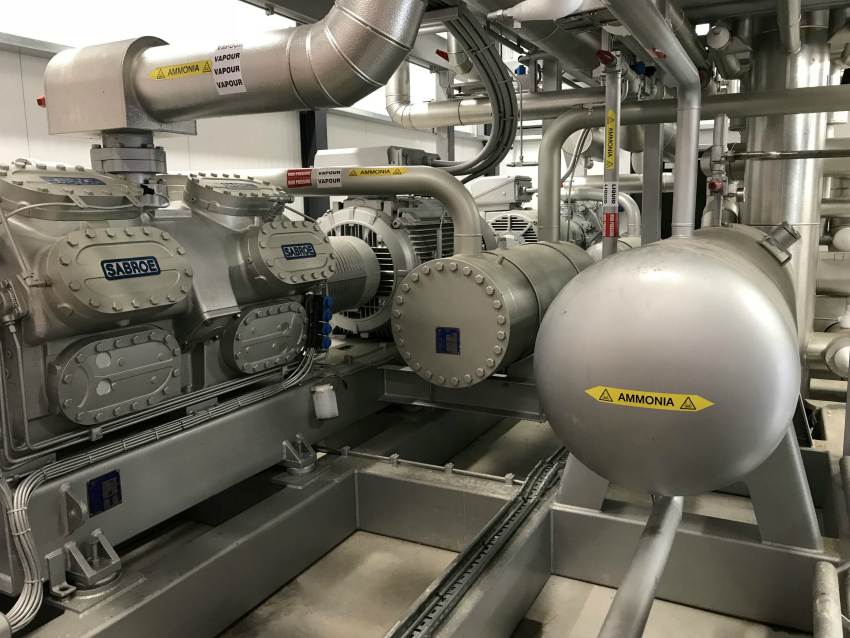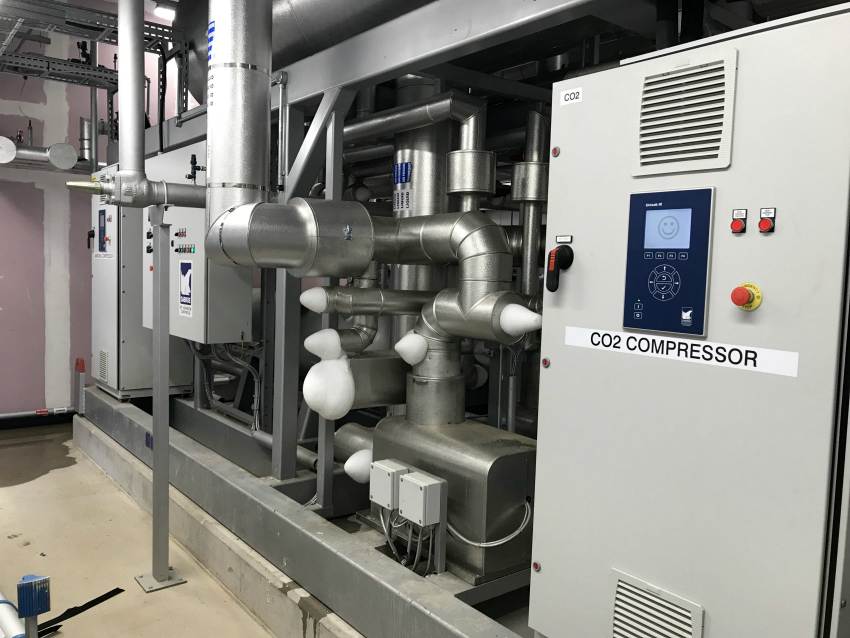03 October 2018
|
| Ed Whinyates of Stonegrove Refrigeration examines ways in which we can manage the impact of refrigeration on the environment. Earth Overshoot Day marks the date each year when mankind’s demand for ecological resources exceeds what the planet can regenerate in that year. We are now consuming 70% more globally than the earth can regenerate and the date when we used up all of our resources for 2018 was 1st August! |
| How does refrigeration impact on our global footprint? Our carbon footprint, and how it impacts on climate change, has a direct bearing on our global footprint. Refrigeration contributes to this and, in Britain alone, air conditioning and refrigeration account for almost 20% of total electricity use. This figure will continue to rise. Carbon emissions currently make up 60% of humanity’s ecological footprint. If carbon emissions were cut in half, the date of Earth Overshoot Day would be pushed back by 89 days. Why are we so reliant on refrigeration systems? Everything that we need for our survival and well-being depends, either directly or indirectly, on our natural environment – with the obvious one being our food resources. Food demand makes up 26% of the global ecological footprint, with a percentage of this needing to be temperature controlled. It is estimated that one third of the food produced in the world for human consumption — 1.3 billion tonnes every year — gets lost or wasted. Whilst refrigeration entails the use of energy it can, of course, also help save energy by reducing food waste. Furthermore, refrigeration has significantly contributed to the ‘convenience’ we enjoy with regard to food. Temperature control is vital in ensuring our food is safe to eat as it preserves the quality and, when correctly stored, prevents the risk of food poisoning. What can be done to help improve the carbon footprint of refrigeration? The growing use of refrigeration has gone hand in hand with a number of social, economic and technological developments to the point where it is ingrained in our day to day lives. As it stands, having no refrigeration would not be practical or safe for humanity. However, there are ways to help with the impact of refrigeration on our global footprint. Refrigeration creates greenhouse gases in two distinct ways, firstly through the energy used to operate the equipment and secondly the choice of man-made refrigerants with inherent global warming potential. Small steps can make a big impact, with refrigeration being no different. A great deal is already being done to reduce the use of high GWP refrigerants, with the phase out of R22 in 2015 and the continued phase out of other high GWP refrigerants over the next decade and beyond. There is also the increased use of natural refrigerants such as ammonia and CO2. Ways to combat the impact of refrigeration In the future our changing, warming climate is likely to increase demand for refrigeration. There are a number of areas that can offer immediate and long-term improvements to the carbon footprint of refrigeration systems. One excellent example of this is minimising refrigeration leaks, particularly for systems with high GWP refrigerants. One obvious way to do this would be the installation of a suitable leak detection system. A good level of planned maintenance will also offer an environmental improvement, not only with leak reduction but also the efficiency. If a refrigeration plant is looked after, and running to its design conditions, less energy will be used and wasted. The importance of refrigeration control systems should also not be underestimated when it comes to a carbon footprint. Refrigeration equipment will be inefficient if not running correctly. With the use of an integrated control system, energy savings are reached through the constant monitoring of plant and the optimization of equipment performance. Another area that offers an improvement on refrigeration impact is the refrigerant itself. The use of natural refrigerants for new installations should be considered, not just on large industrial installations but, if practical, also smaller commercial projects. With regards to man-made refrigerants there are now some excellent low GWP options available that can be used for new installations and within existing systems that contain high GWP refrigerants. In some cases a simple ‘drop in’ process can be carried out with minimal disruption to a client. The installation of energy efficient systems will have a positive impact and can offer better longevity. It is generally considered that energy savings of between 20% and 50% are possible through the proper specification, use and maintenance of equipment. In essence the four key elements of a more efficient system include minimising the load, minimising the temperature difference, checking the controls and maintaining the system properly. In summary A world without refrigeration could have massive detrimental effects on society. Although it has a large carbon footprint, without refrigeration technology there may not be access to the food resources needed to survive during the different seasons of the year. Food production and storage would be less manageable and far costlier. Food consumption aside, we also wouldn’t have the cooled environments necessary for medical research and the storage of disease-preventing pharmaceutical products. |
| To find out how Stonegrove can help with your refrigeration requirements, please contact: [email protected] 01279 408690 www.stonegroverefrigeration.co.uk |
Content continues after advertisements










